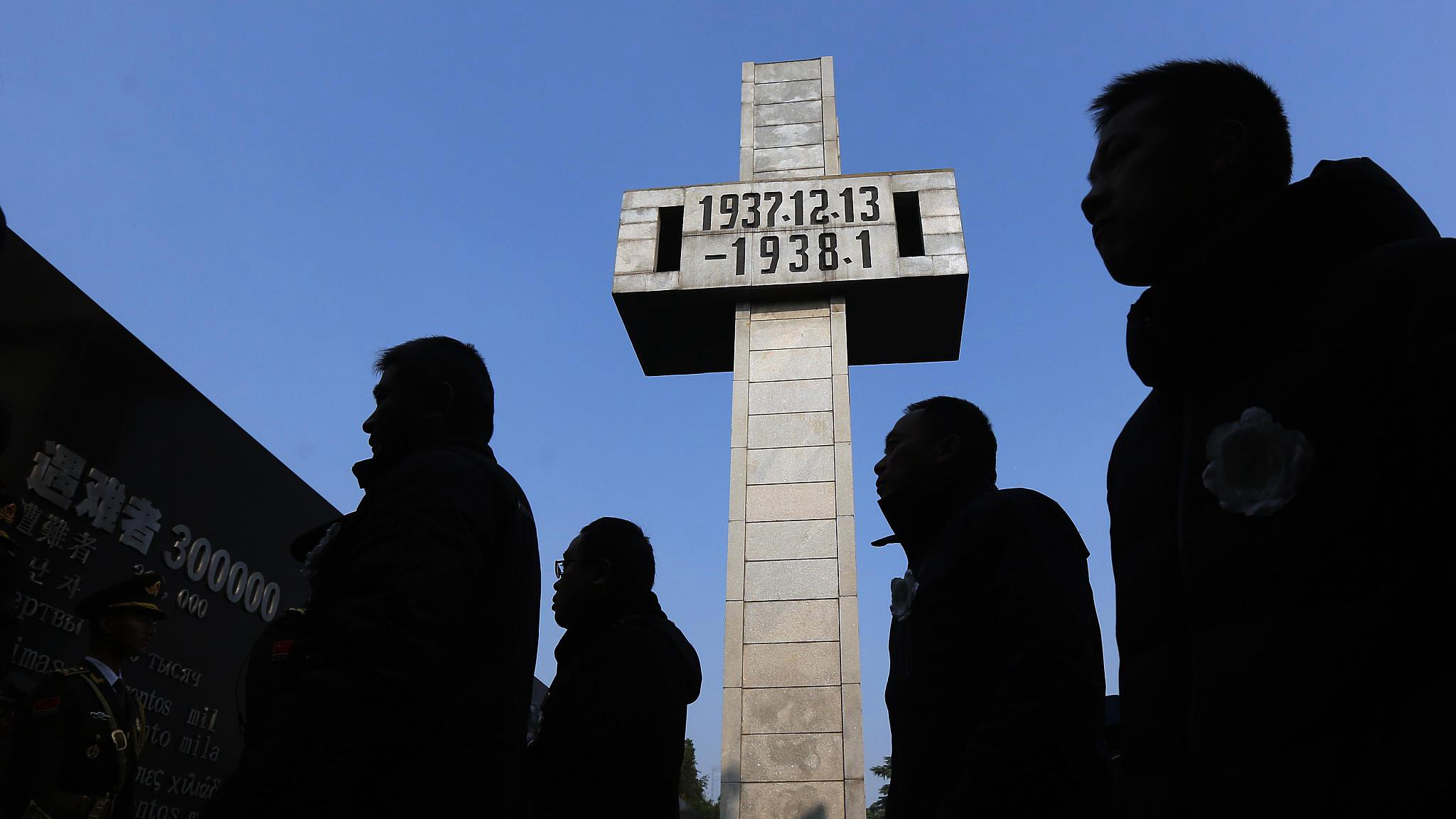
December 13 marks Nanjing Massacre Memorial Day. It has been 81 years since the tragedy happened. Though there are fewer and fewer witnesses who are able to take part in the commemoration as time goes by, discussions about this tragedy shall never stop.
Japanese troops started the massacre in Nanjing on December 13, 1937, killing more than 300,000 people in the next 40-odd days. As the most horrible violation of international laws, the atrocity was tried by the International Military Tribunal for the Far East and the Nanjing War Crimes Tribunal, which rendered a verdict based on irrefutable evidence.
Today, the Chinese people remember that catastrophe and mourn the victims of the massacre and all those killed during the Japanese aggression against China, which suffered at the hands of the war crimes of Japanese invaders.
What should be noticed is that this year also marks the 40-year anniversary of the signing of China-Japan Peace and Friendship Treaty. And the two countries' relationship has warmed since the Japanese PM's visit in October.

The national ceremony for China's National Memorial Day for Nanjing Massacre Victims is held at the Memorial Hall of the Victims in Nanjing, east China's Jiangsu Province, December 13, 2018. /VCG Photo
But Japan, especially the government, has been unwilling to admit their war crimes in Nanjing. What is the importance of commemorating the Nanjing Massacre for the two countries and the rest of the world?
For the Chinese people, remembering this period of bitter history does not aim to enlarge hatred or to play the alleged “historical card.”
In essence, as the saying stressed “forgetting history means betrayal,” the only purpose of Massacre Memorial Day is just to serve as a reminder of the calamities the war caused for both Chinese and Japanese people, as well as the world, and also as an expression of the Chinese people's stance of combating aggression and safeguarding the dignity of human beings and the valuable peace of Asia and the world.
For Japanese people, remembering this brutal and bloody history conducted by their great-grandfathers does not mean the current Japanese population must undertake the due obligations. After all, all those atrocities are not conducted by them in person.

The national memorial ceremony for China's National Memorial Day for Nanjing Massacre Victims is held at the Memorial Hall for the victims in Nanjing, east China's Jiangsu Province, December 13, 2018. /VCG Photo
However, a shared correct memory and acknowledgment between Japanese people and their neighbors in East Asia, as well as a sincere apology from the Japanese Government may lay a solid foundation for the currently fragile mutual trust and people-to-people mind-interconnectivity between Japan and its Asian neighbors.
For the rest of the world, here comes another question: why is the Nanjing Massacre still not well known or recognized by the world outside Asia, especially compared with similar atrocities by Nazi Germany in Europe?
Thus, as many International relations experts and historians suggest, it can be seen that a National Memorial Day is not enough. In other words, it is extremely necessary to set an International Memorial Day for the Nanjing Massacre victims and hold public memorial services and other activities on a global level, alongside other major human rights tragedies such as Auschwitz, if necessary.
Chinese President Xi Jinping has pointed out many times, “We can never choose our birthplace. Our neighbors cannot be moved either. Therefore, the only practical and correct way for us is just to learn from each other, to acquire the mutual adaptations and reconciliations with each other, and finally to shoulder the responsibilities together in order to build a community with a shared future for humanity.”

The national memorial ceremony for China's National Memorial Day for Nanjing Massacre Victims is held at the Memorial Hall for the victims in Nanjing, east China's Jiangsu Province, December 13, 2018. /VCG Photo
As such, China and many other war victims in Asia have already chosen a noble and tolerant way to forgive Japan in many ways, including dropping their war indemnity officially.
So now it turns to the Japanese government to face up to the history honestly and undertake its due obligations bravely, or to distort historical documents and hurt the feelings of their neighbors again and again.
Looking forward to hearing from Tokyo with its sincere and official apology, though very, very belated.
Copy Editor/Kang Sijun
Editor/Kang Sijun
Author: Wang Peng is a fellow at the Charhar Institute.
Source: CGTN, 2018-12-13
Original Link: https://news.cgtn.com/news/3d3d414f7a676a4d31457a6333566d54/share_p.html